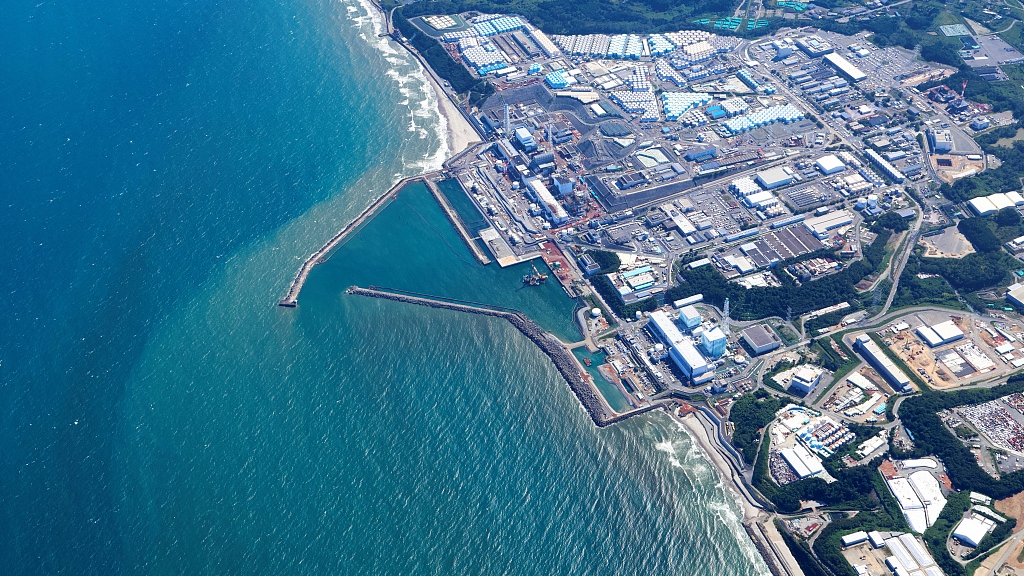The relentless flow of radioactive water from Japan’s ravaged Fukushima power plant is beginning to reshape the very fabric of the sea, unleashing unprecedented levels of tritium into the ocean, and prompting international alarm. Tokyo Electric Power Company (TEPCO), the plant’s owner, has detected a startling ten becquerels (Bq) per liter of this radioactive substance – the minimum detectable amount. This revelation has sent shockwaves throughout the global community, as experts warn of the long-term ecological and health repercussions. This report delves into the far-reaching consequences of Fukushima’s nuclear-contaminated water release.
Record-High Tritium Levels Detected in Sea Surrounding Fukushima
In an alarming revelation, TEPCO recently disclosed that the concentration of tritium in the ocean around the Fukushima Daiichi nuclear plant has skyrocketed to ten becquerels per liter. This represents an alarming surge compared to the previous five years when levels oscillated between 0.4 to 2.8 Bq per liter. TEPCO affirms that this spike is undeniably linked to the deliberate discharge of contaminated water, as reported by Japan’s Kyoto News Agency. While TEPCO insists that the detected minimum tritium level is not immediately hazardous, it raises profound concerns about the long-term consequences.
Moreover, Japan’s Ministry of the Environment and Fukushima local authorities, after their own water and fish samples, report that they have not found tritium concentrations reaching the detectable minimum. This discrepancy in findings raises questions about the accuracy of the data and underscores the need for transparency and independent monitoring.
Global Outcry and Economic Impacts Escalate Amid Water Release
Japan’s controversial decision to release nuclear-contaminated water into the sea has ignited a storm of opposition both within and outside the country. The backlash is palpable, with dire economic consequences beginning to surface. In Hong Kong, Japanese restaurants have seen a dramatic decline in business since the announcement of the water release. Martin Chan, a director of the Hong Kong Federation of Restaurants and Related Trades, reports that business initially dropped by 10 to 20 percent and has now plunged to around 40 percent. Local consumers, concerned about food safety, are choosing to avoid Japanese cuisine altogether.
South Korea, too, is experiencing the ripples of this crisis. Prices of groupers have plummeted from 30,000 won ($23) per kilogram to under 20,000 won, as South Koreans grow wary of seafood originating from the affected waters. The South Korean government has allocated 57.6 billion won ($44 million) for 2024 to monitor the radioactivity of seawater and seafood in a bid to safeguard public health.
A recent poll by a South Korean environmental group reveals that over 70 percent of respondents oppose the release of nuclear-contaminated water from Fukushima. Approximately 78 percent of the 1,000 respondents aged 18 and above express frustration with their government’s perceived support for the release and call for measures similar to China’s embargo on Japanese seafood.
Unchecked Radioactive Substances Threaten Oceans Worldwide
Tritium is just one of over 60 radioactive elements found in Fukushima’s contaminated water. Some of these elements have a half-life of centuries and cannot be effectively filtered using current technology. With the release of this water expected to take decades, the specter of these radioactive substances spreading worldwide via ocean currents looms large. The lack of a third-party monitoring mechanism for TEPCO’s water filtration system further compounds the anxieties surrounding this unfolding environmental catastrophe.
China has taken proactive steps to monitor the radioactivity of seawater near Fukushima using advanced technology such as satellite remote sensing. The nation has pledged to provide timely alerts to the international community if the situation deteriorates, highlighting the importance of global cooperation in mitigating the effects of this crisis.
In conclusion, the release of nuclear-contaminated water from Fukushima is evolving into an international crisis, with far-reaching implications for the environment, public health, and economies across the globe. The record-high tritium levels, mounting opposition, and the uncontrolled dissemination of radioactive substances underscore the urgent need for concerted efforts to address and contain this ongoing disaster.















